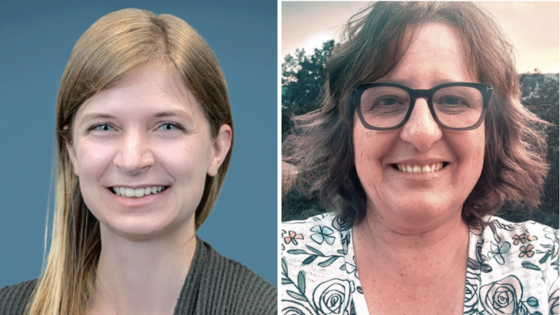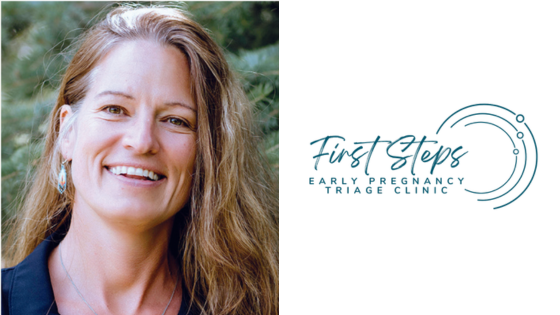(From Connexion Newsletter Fall/Winter 2023)
When First Steps Early Pregnancy Triage Clinic opened its doors in September, the clinic was an immediate ‘one-stop-shop’ for initial maternity care for both unattached patients and those who are attached to providers who do not provide maternity care.
“Patients don’t require a referral from a physician or nurse practitioner,” says Joanna Norman, Registered Midwife and Clinic Lead for First Steps Early Pregnancy Clinic. “The clinic will be a first point of contact, offering accessible pregnancy care within the first and early second trimester.”
Virtual and in-person visits provide prompt access to prenatal investigations, including routine bloodwork, ultrasound, genetic screening, as well as opportunities to identify and triage high-risk pregnancies with timely referrals to specialists.
Norman says, “The triage clinic will receive patients at their earliest stage of pregnancy, which leads to better health outcomes and provides reassurance and timely access for families seeking care. This clinic will also help reduce the burden on other services, such as the Royal Inland Hospital Emergency Department and the Urgent Primary Care and Learning Centre.”
“The clinic helps fill a significant gap in care for unattached patients in our community,” says family physician lead Dr. Justyne Morrow. “Not having a primary care provider during pregnancy is a very stressful experience as it requires one to navigate and advocate for oneself in a complex, opaque system. I am very proud of the work this clinic is doing to provide team-based interdisciplinary care to unattached pregnant patients to help alleviate this stress and ensure good prenatal care.”

The team of family physicians, nurse practitioners, and registered midwives includes Indigenous care providers, and provides support and referrals for early miscarriage care, contraception counselling, and termination care. All staff receive training to provide culturally safe care, connecting patients to appropriate resources, programs, and services while also seeking input from patients, families, and caregivers to inform patient needs and support decisions.
“We live in a multicultural place,” says Nurse Practitioner Natalie Manhard. “Providers have completed the San’yas Indigenous Cultural Safety Training, and the clinic has access to provincial translation services to ensure we are being respectful and providing a safe space for all pregnant people needing access to health care services.”
After providing initial treatment in two to three antenatal visits, the team packages the patient record and transitions care to the Thompson Region Family Obstetrics (TRFO) clinic for ongoing antenatal care, delivery, and postpartum care. This new streamlined approach aims to reduce the workload on TRFO and decrease stress for patients who would previously have sought care through the Emergency Department, the Urgent Primary Care and Learning Centre (UPCLC), or the Kinetic Energy walk-in clinic.
“We are already seeing the impact at the UPCLC. In the past, we would have provided an initial assessment prior to referring patients to the TRFO, but with this new clinic, people can go straight to them. It will reduce the impact on the UPCLC significantly,” says Matt Stubbings, Interior Health Manager of Urgent and Primary Care in Kamloops.
A grant from the Foundation for Advancing Family Medicine for Workplace Integrated Demonstration Project funding supports clinic development and is going toward optimizing the comprehensive primary care team as well as funding those who cannot be compensated in a fee-for service model (e.g., nurse practitioners and medical office assistants).
“Funding ensures the clinic will function until mid-March 2024,” says Shelley Breen, Project Lead. “Conversations have started with health care partners to explore further innovative health care grants to plan for the clinic’s sustainability.”


